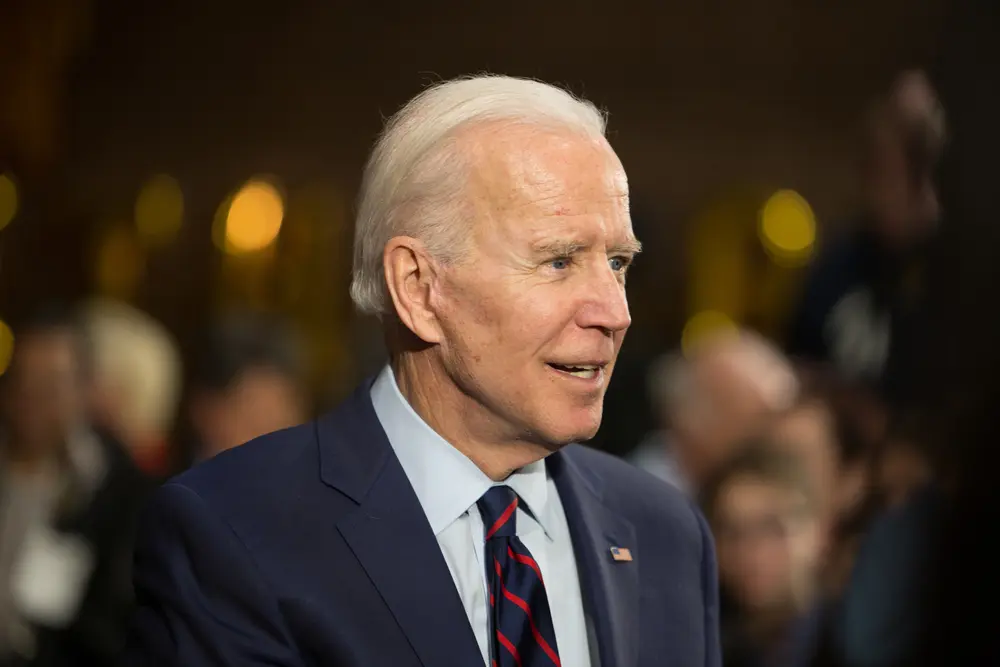
It appears abortion will be one of the issues to dominate the U.S. national debate ahead of next year’s election. Few of the leading presidential candidates have unveiled unexpected views on the subject, though it seems their rhetorical tools are being sharpened.
It is no surprise, for example, that Joe Biden is having a pop at the Republicans (unless, of course, you consider his previous convictions). But his latest remarks demonstrate a concerted effort to look tough on abortion—to be the ‘pro-choice’ option. The president said on Saturday that state bans on abortion—following the overturning last year of Roe v. Wade—were “just the beginning,” adding that “their agenda is extreme, dangerous, and out-of-step with the vast majority of Americans.” (“Vast majority” doing a good deal of work here.) He also criticised restrictions on mifepristone abortion pills, which have been the focus of much controversy over recent months.
On the same day, June 23rd, that he won the endorsement of Planned Parenthood, Mr. Biden said:
My administration will continue to protect access to reproductive health care and call on Congress to restore the protections of Roe v. Wade in federal law once and for all.
Mr. Biden’s rhetoric appears to be directed particularly at Donald Trump, who appointed three of the six Supreme Court justices who overturned Roe v. Wade—a move the Democrat described as “dangerous, extreme, and out of touch.” Mr. Trump was also responsible for appointing the district judge who ordered a hold on mifepristone.
It seems President Biden hopes to paint a clear picture of reasonable vs. extreme; mainstream vs. marginal; safe vs. threatening for Americans whose sympathies lie with keeping abortion options legally available at all stages of pregnancy. The ethical dimension of Biden’s Democrat platform is rhetorically coloured by the issue of abortion, which necessitates keeping the subject “at the centre” of his presidential campaign.
Fellow Democrat candidate Robert F. Kennedy, Jr. was far less clear in an answer given this week, though the fundamentals were roughly the same. He described himself as a “pro-choice” candidate who views “every abortion [as] a tragedy” and is “appalled” by images of third-term abortions.
Mr. Kennedy said “I don’t think there’s anybody in this country that has worked harder for medical freedom [and] for bodily autonomy than me.” He would find “other ways” than the law to reduce the number of abortions.
Kennedy didn’t appear comfortable addressing the issue, and was certainly (also unsurprisingly) less prepped than Mr. Biden, perhaps because his views on this subject are more nuanced: hardly fitting for a debate which has become so black-and-white.
Mr. Trump is being attacked by other Republicans for the same reason. The party, Trump said, failed last year to regain control of Congress because “the ‘abortion issue,’ [was] poorly handled by many Republicans, especially those that firmly insisted on No Exceptions, even in the case of Rape, Incest, or Life of the Mother, that lost large numbers of Voters.”
So while, as The New York Times puts it, “more than perhaps any other Republican, former President Donald J. Trump is responsible for the current state of abortion access,” he is also now “loath to talk about it.”
Not, however, if Ron DeSantis has anything to do with it. It is not long since the Florida governor (whose rhetoric appears to be tightening after it was earlier this year described as “far less soaring” than that of his opponents) took a swipe at Mr. Trump for suggesting the state’s six-week abortion ban was “too harsh.”
Mr. Trump’s social conservative credentials have always been questionable, at best—a gap Mr. DeSantis is “aggressively” trying to fill. The former president sees this—on abortion, at least—as a sure way to lose at the ballot box, though where he sees the line being drawn instead is not exactly clear.
In his latest speech over the weekend, the former president said the federal government should have a role in regulating late-term abortions, but was soft on the specifics. And his rhetoric only became more pointed when relating to a far less controversial abortion-related topic: “We will defeat the radical Democrat policy of extreme late term abortion” (emphasis added).
Such an approach could be damaging given that the abortion question isn’t, as The New York Times put it, “not fading as a driving issue in America,” but appears to be growing in significance by the day.
